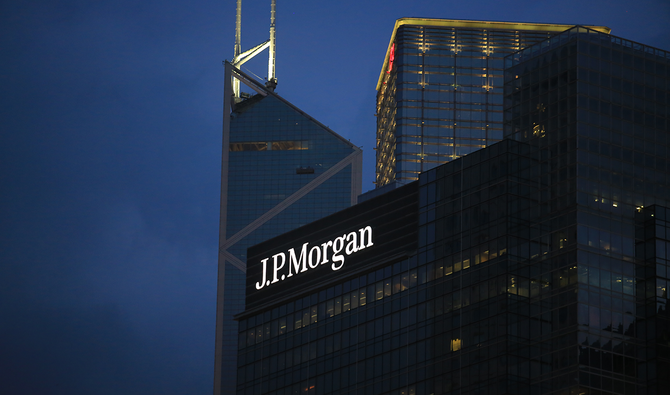
- ARAB NEWS
- 05 Jul 2025

Saudi Arabia is set to “come out on top” in the current oil market volatility, American investment bank JP Morgan said at the weekend.
JPM, the biggest bank in the world by profit, knows what it is talking about. It has been involved in Saudi Arabia since the 1930s, when it led the initial round of investment in the nascent oil industry. It has been an enduring relationship ever since.
A JPM report has described how Saudi Arabia, with its low-cost and flexible production, could increase its share of the global crude market from 11 per cent to 15 per cent by 2025. It will probably once again be challenging Russia as the world’s biggest producer as high-cost production in the US falls behind.
But that headline was only the tip of an iceberg of detailed analysis and data from JPM’s London-based oil and gas team led by analyst Christyan Malek. The rest of the JPM report, “Global Energy Analyser: Supercycle on the Horizon,” was full of insightful commentary about the coming decade in the global oil markets and deserves a deeper dive.
A “race to the bottom for demand and supply” is underway, JPM said. The shock to the crude markets from the pandemic lockdowns and the (temporary) ending of the Saudi-Russia supply deal in OPEC+ will bring about some permanent structural changes in oil. JPM argues that around 3m barrels per day of demand will be permanently lost, while 5m barrels of supply loss will occur between 2022 and the middle of the decade.
“95m barrels per day is the new 100m,” JPM said, as high cost wells are shut in, there are fewer “greenfield” projects as a result of slower investment, and existing fields are marginalized or depleted.
Demand will recover but is forecast to get to pre-pandemic levels only in November next year. Aviation fuel in particular looks certain to be in weak demand as airlines struggle to get back in the air.
In non-OPEC producers outside the US (mainly the large independent oil companies of Europe), JPM believes some regions will be “irreversibly impacted” by cuts to capital expenditure. More investment will be directed toward the transition to renewable energy and away from oil.
US shale, the force that has revolutionized the global energy scene for the past two decades, is “down but not out,” JPM says. Production is now predicted to reach only 11m barrels a day by 2030, down from a pre-pandemic forecast of 17m.
But there is the potential for “significant supply growth” should West Texas Intermediate move above the average break-even of $50 a barrel (it currently stands at just below $35).
It is in the OPEC+ countries that the interplay between oil and policymaking is the most intriguing. So far during the pandemic crisis, producers such as Saudi Arabia, the UAE and others have dealt with the vital issue of falling government revenue through varying degrees of austerity — higher taxes and other levies, and expenditure cuts — but these are emergency measures.
By 2022, JPM believes, a “tipping point” will be reached where global oil oversupply is reversed, inventories are drawn down and economic recovery picks up, all under a continued regime of controlled production.
That is when the current OPEC+ cuts — the biggest in the history of the oil industry — expire, and in theory the world could go back to unrestrained pumping, perhaps bloated by revived output from Libya, Venezuela and even Iran. JPM thinks that Saudi Arabia, as the co-lead of the OPEC+ world, will continue to seek to absorb additional barrels on the market through quota cuts.
From 2022 the “supercycle” could kick in, as the effect of capex cuts and tight supply control take effect, raising the scenario of “much higher oil prices” in the medium term.
In the current era of acute uncertainty about the global economy, as well as financial and energy markets, all predictions are problematic. But the JPM report is as reliable a roadmap as any.
• Frank Kane is an award-winning business journalist based in Dubai. Twitter: @frankkanedubai